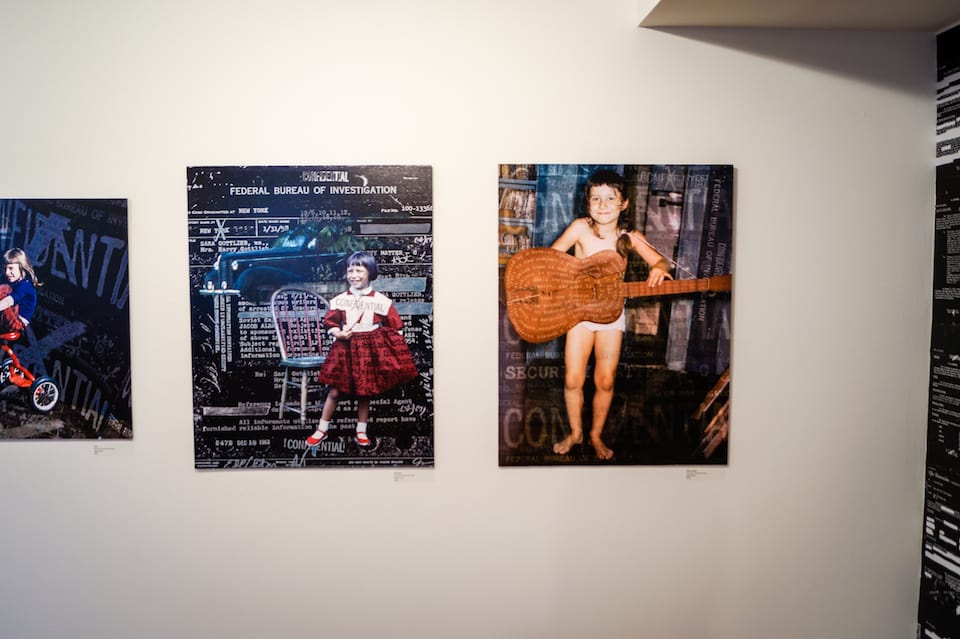[dropcap]The[/dropcap] Canadian Lesbian + Gay Archives’ (CLGA) most recent exhibit, “Dissident Family,” features the work of Toronto-based artist Amy Gottlieb, and examines the overlap of the political and personal aspects our day-to-day lives. More specifically, the photography exhibit looks at the family in both an emotional and societal context. Most of the photographer’s subjects, being queer, can attest to the blurred lines between personal life and political life. “Long Island Frolic,” one of the most prominent pieces in the collection, is a faded picture of a small girl on a beach, flanked by her adoring father. Embossed over the photo’s background are excerpts from government documents bearing foreboding logos and ominous phrases such as “sedition” and “high treason.”
The exhibit is housed in a large room on the second story of the CLGA, which are located in a repurposed house. The setting factors a certain sense of realism into the exhibit — a dynamic that is often absent from a traditional gallery environment. Situated near the room’s western edge is a table with a file of documents placed on top. It doesn’t seem to serve any purpose, until one opens the folder and leafs through the government documents highlighting the artist’s allegedly communist family. Similarly, some of the photographs facing the entrance appear to be misplaced — that is, until the viewer approaches the photos and can read their captions clearly.
The most pertinent feature of the exhibit is a series of photographs entitled “We Are Family,” showing a group of demonstrators successfully protesting the decision of the Ontario provincial government to strike down a law legally recognizing same-sex unions in 1994. The artist’s own caption reads “[m]y hope is that while these victories continue to change attitudes, we will not abandon our disruptive and messy sexual liberation.” In an era where pride parades have been inundated with corporate sponsors, and politicians are criticized for not showing up to them, the poignancy of this message is apparent — there’s a danger of resigning oneself to the dangers of the status quo that is inherent in any political victory. Although the movement for LGBT liberation has advanced astronomically since the Stonewall Riots of 1969, its mission is far from over, as the continued existence of oppression and ignorance towards LGBT individuals remains prominent.
What Dissident Family lacks in size and variety is replaced amply by its emotional impact and political relevance. Some may be put off by its distinctive visual style, but others may be enticed by its honesty. For the modest price of a five-dollar donation, it’s an event that isn’t to be missed.
Dissident Family runs until December 13 at The Canadian Lesbian + Gay Archives.


